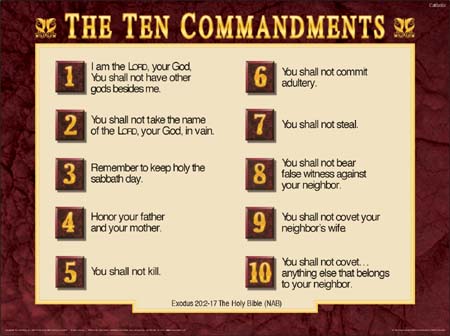 that is certainly one of the things that I have in mind. However, we should also think of Pentecostal "prophets," the Pope, and a lot of common Christians who claim that "God told me."
that is certainly one of the things that I have in mind. However, we should also think of Pentecostal "prophets," the Pope, and a lot of common Christians who claim that "God told me."I am opposed to all of these claims of revelation because they undermine the sufficiency of the true Scriptures, the Bible, in both the Old and the New testaments.
First, what does the Bible say about itself? Paul, writing to his apprentice Timothy, said (II Timothy 3:14-17): "As for you, continue in what you have learned and have firmly believed, knowing from whom you learned it and how from childhood you have been acquainted with the sacred writings, which are able to make you wise for salvation through faith in Christ Jesus. All Scripture is breathed out by God and profitable for teaching, for reproof, for correction, and for training in righteousness, that the man of God may be complete, equipped for every good work." Notice what he tells us about the Scriptures. First, they are "breathed out by God," i. e., their authority derives from their ultimate authorship by God. Second, they make us wise for salvation. And third, they equip the believer, so that he is complete, equipped for every good work.
The desire for additional revelation indicates that the person does not believe that the Scriptures are sufficient for salvation, and would leave a believer incomplete, ill-equipped for every good work. That is, that they fail to achieve their intended purpose (see Isaiah 55:11).
Notice, secondly, what Jude 1:3 also says: "Beloved, I found it necessary to write appealing to you to contend for the faith that was once for all delivered to the saints." While it may be true that the full explanation was not yet complete when Jude wrote, he clearly indicates that the content was delivered once for all. This brother of the Lord saw no need for the revelation of any new doctrines, as both Rome and the Mormons have done. The writer of the Epistle to the Hebrews said the same thing (Hebrews 1:1-2): "Long ago, at many times and in many ways, God spoke to our fathers by the prophets, but, in these last days, He has spoken to us by His Son, whom He appointed the heir of all things, through whom also He created the world." There is progressive revelation from the creation to the Gospels to the founding of the church, because all revelation was to point to Jesus Christ. Once He came, there was some apostolic explanation necessary, but no additional content was necessary or possible. That rules out the new dogmas decreed by Rome, such as papal infallibility, or the ascension of Mary, as well as "another testimony of Jesus Christ" pretended by the Mormons.





